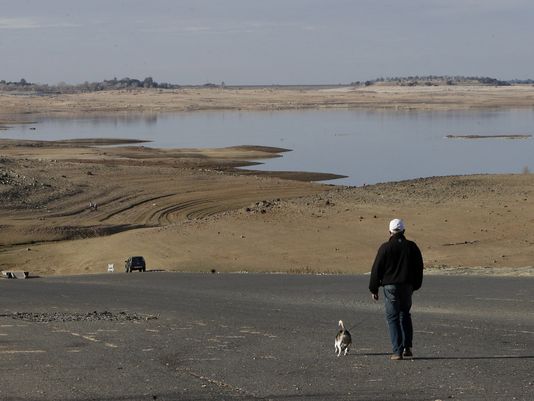For the first time in the history of California groundwater will be restricted for numerous landowners, if Jerry Brown signs a package of passed bills by the state legislature.
Up until now, groundwater remains a private natural resource in the state and property owners can drill a well and extract as much water as they see fit. However, because aquifers across the state are being exhausted to the extent that overlying land is actually collapsing, new legislation has been proposed.
The Fresno Bee reported that groundwater represents 60 percent of all fresh water consumed in California during drought years. During non-drought years it supplies about 40% of the water. “In terms of the culture of water management in California, it’s a major cultural shift,” explained Graham Fogg, a UC Davis professor of hydrogeology and groundwater expert. “I’ve worked at UC Davis for almost 26 years, and I never thought in my lifetime I would see this in California, frankly. But it has been sorely needed.”
Numerous agricultural groups do not favor this cultural shift, claiming that regulations increase costs and financially undermine their farms. Although property owners who pump less than 2 acre-feet of water per year are exempt from the proposed laws, thousands of larger extractors are subject to the proposed regulations.
Northern California Water Association CEO, David Guy explained that there are 50,000 property owners in the Central Valley alone who would be impacted by the new laws.
Beside not being able to extract desired amounts of water, landowners will need to install expensive agricultural flow meters to monitor their groundwater usage. The meters can cost several thousand dollars and many farms have several wells. Moreover, the Bee reported that constant monetary outlays will be required of landowners in collecting data from these meters.
Yet, according to Fog a better understanding of the groundwater and aquifer geological systems is necessary, especially in times of what the Los Angeles times referred to as an Epochal drought. “In most cases, there is an ongoing need for improving the understanding of the groundwater hydrology in these basins,” Fogg insists. “They’ll have to determine what the future sustainable yield is so that these basins don’t drift into an unsustainable condition. It’s a problem that unfolds on a time scale of decades or centuries.”

COMMENTS
Please let us know if you're having issues with commenting.